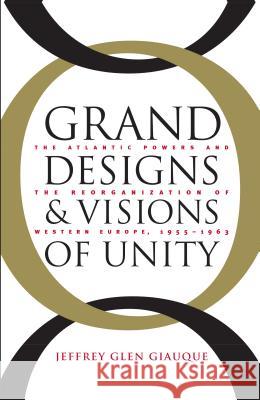Grand Designs and Visions of Unity: The Atlantic Powers and the Reorganization of Western Europe, 1955-1963 » książka
Grand Designs and Visions of Unity: The Atlantic Powers and the Reorganization of Western Europe, 1955-1963
ISBN-13: 9780807853443 / Angielski / Miękka / 2002 / 344 str.
Grand Designs and Visions of Unity: The Atlantic Powers and the Reorganization of Western Europe, 1955-1963
ISBN-13: 9780807853443 / Angielski / Miękka / 2002 / 344 str.
(netto: 202,73 VAT: 5%)
Najniższa cena z 30 dni: 212,43
ok. 30 dni roboczych
Dostawa w 2026 r.
Darmowa dostawa!
In the late 1950s, against the unfolding backdrop of the Cold War, American and European leaders began working to reshape Western Europe. They sought to adapt the region to a changing world in which European empires were rapidly disintegrating, Soviet influence was spreading, and the United States could no longer shoulder the entire political and economic burden of the West yet hesitated to share it with Europe. Focusing on the four largest Atlantic powers--Britain, France, Germany, and the United States--Jeffrey Giauque explores these early stages of European integration.
Giauque uses evidence from newly opened international archives to show how a mix of cooperation and collaboration shaped efforts to unify postwar Europe. He examines the "grand designs" each country developed to advance its own interests, specific plans for collaboration or accord, and the reactions of the other Atlantic powers to these proposals. Competing national interests not only derailed many otherwise sound plans for European unity, Giauque says, but also influenced such nascent European institutions as the Common Market, the antecedent of today's European Union. Indeed, beyond examining the origins of the European community, this comparative study provides insight into national attitudes and aspirations that continue to shape European and American policies today.











